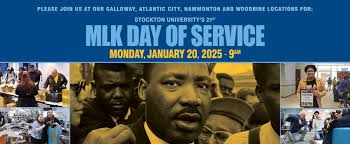Every year, the third Monday in January is dedicated to honoring the life, work, and impact of Dr. Martin Luther King Jr. As we approach Martin Luther King Jr. Day in 2025, it provides an important opportunity to reflect on the enduring legacy of a man who became a symbol of the American Civil Rights Movement, social justice, and peace. King’s message of nonviolent resistance, equality, and the hope of a better future continues to inspire millions around the world, but the observance of his life and principles also forces us to ask: How far have we come, and how far do we still have to go?
This article explores the significance of Martin Luther King Jr. Day, his contributions to American society, the ongoing fight for civil rights, and the challenges that still persist in 2025.

The Legacy of Dr. Martin Luther King Jr.
Dr. Martin Luther King Jr. was born on January 15, 1929, in Atlanta, Georgia. The son of a Baptist minister, King was raised with a strong sense of faith and community. His education, including studies at Morehouse College, Crozer Theological Seminary, and Boston University, laid the intellectual and theological foundation for his future activism. Inspired by Mahatma Gandhi’s philosophy of nonviolence, King became a passionate advocate for racial equality, economic justice, and peace.
King’s most famous achievement was his leadership in the American Civil Rights Movement of the 1950s and 1960s. His involvement in landmark events like the Montgomery Bus Boycott (1955), the March on Washington (1963), and the Selma to Montgomery marches (1965) were pivotal moments in the fight for civil rights. In these moments, King emphasized that change could only come through peaceful means, using the moral force of nonviolence to dismantle segregation, institutionalized racism, and discriminatory laws.
MLK Day: A National Holiday
Following King’s assassination in 1968, his legacy was immortalized in the fight to establish a national holiday in his honor. It wasn’t until 1983 that President Ronald Reagan signed the legislation to make Martin Luther King Jr. Day a federal holiday. The first official observance took place on January 20, 1986. Since then, Martin Luther King Jr. Day has been celebrated every year as a way to honor the man and his work.
However, the holiday was not without controversy. Some states resisted adopting the holiday, citing concerns over King’s radical politics or opposing the idea of a holiday based on a political figure. In fact, it wasn’t until 2000 that all 50 states officially recognized Martin Luther King Jr. Day. Today, it serves not only as a time for remembering King’s contributions, but also as a day of service. Many Americans observe the holiday by participating in volunteer work, contributing to the communities they live in, and carrying on King’s spirit of service.
The Role of Martin Luther King Jr. Day in 2025
As we approach the observance of MLK Day in 2025, it is important to recognize the cultural and political shifts that have taken place over the years. In particular, the holiday in recent years has taken on greater significance amid ongoing debates about race, inequality, and the future of civil rights in America.
In 2025, the nation is navigating a complex landscape of racial justice issues, some of which were unimaginable during King’s lifetime. The rise of the Black Lives Matter movement, the continued debate about police brutality, and the need for more inclusive and equitable policies in education, healthcare, and employment reflect a growing awareness of the gaps that still remain in realizing King’s dream of a truly equal society.
MLK Day in 2025 will be a time for reflection on how far we have come in racial progress, but it also presents an opportunity to ask the tough questions about what still needs to change. King’s dream of a world where people are judged by the content of their character rather than the color of their skin remains elusive for many Americans. Income inequality, disparities in healthcare and education, and ongoing racial discrimination still pose significant obstacles to achieving the kind of inclusive society King envisioned.
Martin Luther King Jr.’s Teachings: Nonviolence, Equality, and Justice
One of the central tenets of King’s philosophy was the practice of nonviolent resistance. Throughout his career, King emphasized that violence begets violence, and that the only way to achieve lasting social change was through love, empathy, and peaceful protest. This approach was rooted in his Christian beliefs and the principles of Mahatma Gandhi, who had successfully led India to independence through nonviolent means.
King’s insistence on nonviolence was not passive. He actively challenged systems of power and oppression, but he did so in a way that was grounded in moral courage rather than physical confrontation. In his “Letter from Birmingham Jail,” King wrote:
“Injustice anywhere is a threat to justice everywhere.”
This line encapsulated King’s belief in the interconnectedness of all people and the need to address inequality wherever it existed. His commitment to peaceful protest led to monumental changes in American society, such as the passage of the Civil Rights Act of 1964 and the Voting Rights Act of 1965. These laws made significant strides in dismantling legal segregation and giving Black Americans the right to vote, though challenges to voting rights and civil liberties continue today.
King’s message of justice extended beyond race. He spoke out against economic inequality, the Vietnam War, and the militarization of U.S. foreign policy. His vision for social change included not just civil rights for Black Americans, but also greater economic opportunity, a fairer criminal justice system, and a world that valued the dignity of all human beings.

The State of Racial Justice in 2025
As we reflect on the state of racial justice in 2025, it’s important to assess the progress that has been made since King’s time. The end of legal segregation and the election of the first Black president, Barack Obama, marked significant milestones in American history. Yet, the fight for racial equality is far from over.
Issues such as mass incarceration, racial profiling, and voter suppression have taken center stage in recent years. In many communities of color, particularly in urban areas, systemic poverty, poor education, and limited access to healthcare continue to create significant barriers to upward mobility. The economic divide between Black and white Americans remains stark, and recent data on wealth inequality suggests that many African American families are still struggling to achieve financial stability.
Additionally, the tragic deaths of Black Americans at the hands of police officers—such as those of George Floyd, Breonna Taylor, and Tamir Rice—have reignited national discussions about police reform and the need for greater accountability. The Black Lives Matter movement, which emerged in response to these injustices, has sparked protests, policy changes, and a renewed commitment to combating racial violence.
While some progress has been made, the battle for equality remains a long and difficult road. The teachings of Martin Luther King Jr. are more relevant than ever as activists, policymakers, and ordinary citizens continue to work toward creating a more just society. King’s call for unity and his insistence on nonviolent protest remain guiding principles in this struggle.
The Significance of Service on MLK Day
Another central aspect of Martin Luther King Jr. Day is its emphasis on service. In 1994, Congress passed the King Holiday and Service Act, which encourages Americans to observe the day by participating in volunteer work. This focus on service reflects King’s belief that individuals have a responsibility to help build a more just and compassionate world.
In 2025, the spirit of service on MLK Day is evident in countless community projects across the nation. From food drives to literacy programs, people come together to make a positive impact in their neighborhoods. Volunteering on MLK Day is a way to honor King’s legacy and to take action toward creating the kind of society he envisioned.
Service is also an expression of King’s belief in the power of collective action. While he was an extraordinary leader, King often emphasized that the movement for justice was not just about a single individual, but about the participation of countless people working together for a common cause. In 2025, volunteerism on MLK Day is a reminder that the fight for justice continues, and that every individual has a role to play in building a better future.
Looking Ahead: What Will the Future Hold?
As we celebrate Martin Luther King Jr. Day in 2025, we are reminded of the unfinished work that remains. Despite the challenges of the past, there is reason for optimism. Movements for racial justice, such as Black Lives Matter and the broader fight for equity and inclusion, are gaining momentum. Young people across the nation are demanding change, and their activism is shaping the future of American society.
While progress may be slow, it is undeniable that King’s vision for a more just, peaceful, and equitable world continues to inspire those who fight for the rights and dignity of all people. In 2025, we must continue to ask ourselves how we can carry forward King’s dream and make it a reality for future generations.
As King once said:
“The time is always right to do what is right.”
On MLK Day 2025, let us remember his words, reflect on his legacy, and commit ourselves to the ongoing struggle for racial justice, equality, and peace. The road ahead may be long, but it is a road that we must travel together.



